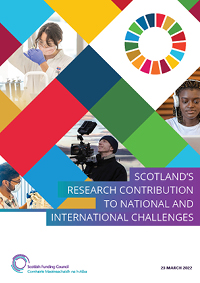SFC news published since 2018. See SFC archived content for earlier news articles.

According to experts, domestic energy renovation projects are currently lagging behind the level needed to decarbonise the building stock within required timescales. Encouraging and enabling individual homeowners to reduce the environmental footprint of their homes could therefore make a considerable impact on Scotland’s transition to net zero.
An innovative solution to this challenge is one of the outcomes of an international knowledge transfer partnership between Robert Gordon University (RGU) and organisations in five other countries. Focussed on innovation, the Stronghouse project supports community approaches to retrofitting houses for energy efficiency. Its ultimate aim is to reduce the carbon footprint of some 15,000 homes in the North Sea Region. Stronghouse partners include local and regional authorities, knowledge institutes, SMEs, business support and public service providers.
The tool also offers long term step-by-step retrofit plans to help homeowners improve their energy efficiency through cutting edge technologies. It is being piloted as part of an 18-month project to support people to carry out energy renovation improvements.
The Scott Sutherland School of Architecture and Built Environment at RGU is one of the three oldest of its kind in the UK, and has a heritage that extends back to the 19th century. Its interest in researching the energy used by buildings goes back many years.

